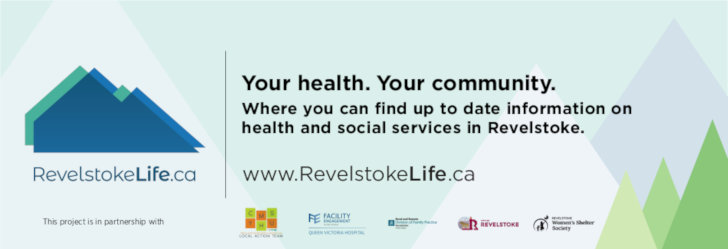By Angie McLeod
In recent years, Revelstoke has experienced a major increase in seasonal residents, hospitality staff, and visitors, especially during the winter. Like any significant cultural shift in a remote resort town, there are both positive new opportunities and more complex social issues.
One such issue is the concern for safety in the local party culture. The shocking increase of drink spiking is just one of the predatory actions that has led to a rapid increase in theft, sexual harassment and/or violence in Revelstoke.
On December 15th, 2018 a local bar owner hosted two training sessions facilitated by Vancouver based harm reduction organization “Good Night Out”. This training was an effort to address the urgent need to create safer spaces for hospitality staff, patrons, performance artists and first responders.
The “Good Night Out” presentation and open conversations with attendees provided an opportunity to explore ways that venue owners and concerned citizens can work together. Practicing better communication and positive solution focused strategies rather than the blaming and shaming of victims and/or venue staff is key in addressing sexual violence.
In order to transition successfully from a fear inducing “Rape Culture” to a healthier informed “Consent Culture” it will take acknowledgement, awareness and participation from the community at large.
The following comparisons show examples of ways communication and actions can evolve from disrespectful approaches to respecting individual boundaries within party culture.
Rape Culture Compliment: “Hey sexy, show me your ______” (targeting physical appearance)
Consent Culture Compliment: “Cool shoes” or “I like your style”
Rape Culture Blaming: “They were asking to be assaulted if they dressed/danced that way”
Consent Culture: Respecting personal boundaries. No really means NO. Period.
Rape Culture: “Ghost groping” in a crowd, touching tattoos, hair beards, or clothing without permission.
Consent Culture: Ask before assuming someone is ok with being touched.
Rape Culture: “I have been spending $$$ here for years so I can do what I want” or “I was buying drinks so ___ (sexual favour) is expected.
Consent = Active yes *Is the person you are interested in sober enough to grant consent?**
A sub-sect of the “underground” dance scene in Toronto has also actively increased safety standards by staffing “Vibe Checkers”, creating code language to protect anyone feeling vulnerable and maintaining a code of conduct and accountability for staff and patrons alike.
“Vibe Checkers” are sober harm reduction workers/volunteers who can be approached to find a safe “chill out” space away from the crowd, be escorted to a safe ride home or have a safe person to dance near if you’re feeling “creeped out” for any reason. They also provide an extra level of communication to venue staff if they notice certain party drugs that do not mix well with alcohol are being consumed or sudden extremely long lines at certain washrooms etc.
An example of code language in the Toronto party culture is using the terms “foxes” and “wolves”. Foxes are there for fun and enjoyment whereas wolves display predator behaviour projecting a vibe of harmful intent. Venues known for a regular occurence of sexual harassment are described as “wolfy” by party-goers. Another example of using code language is approaching venue staff with a simple statement: “I am waiting for my friend “Mary” have you seen her yet?” Such a statement is code to the staff that you are feeling vulnerable/on a bad date/feel “off” and need help to get a safe ride home immediately.
An organization called the Dandelion Initiative in Toronto is a grassroots social movement that was formed by survivors of sexual violence as a response to the Ghomeshi hearings in February 2016. Their mandate is to provide education for a better understanding of true consent and help business owners and event planners be more accountable for maintaining safer spaces. Venue owners who are investing in educating staff and patrons with bystander intervention tools/techniques, developing and practicing in house anti-harassment/sexual violence policies are added to the Safer Spaces Listing on the Dandelion Initiative’s website as a gesture of respect.
As a community we have become aware that Revelstoke is facing dangerous issues that will need community members, businesses and leaders to participate in finding solutions to create safer spaces for all people. As the youth in our community are gradually being given opportunities to perform and celebrate as a part of new events let’s get to that next level of taking action to maintain a safe standard of living.
If you are interested in sharing ideas, experiences, and/or volunteering to create a local harm
reduction focused collective in Revelstoke please contact The Revelstoke Current. A community is only as strong as the most vulnerable members.
**For more detailed info on positive strategies for safer spaces check out the following sites:



Facebook Comments